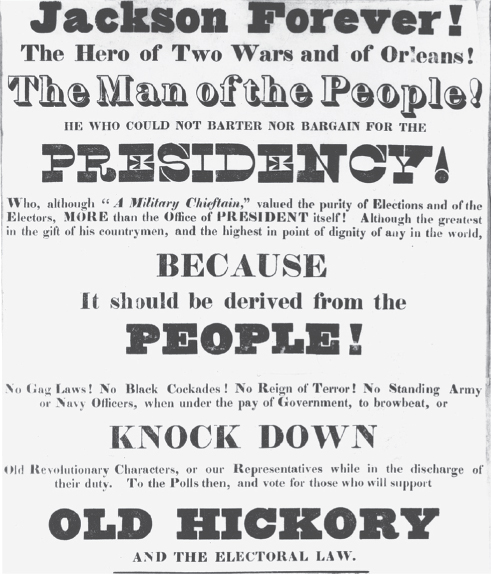Why did Andrew Jackson defeat John Quincy Adams so dramatically in the 1828 election?
Printed Page 303

Figure false: Campaign Poster for the 1828 Election
Figure false: This poster praises Andrew Jackson as a war hero and a “man of the people” and reminds its readers that Jackson, who won the largest popular vote in 1824, did not stoop to “bargain for the presidency,” as John Quincy Adams presumably had in his dealing with Henry Clay. © Collection of the New-York Historical Society.
JUST AS THE MARKET REVOLUTION held out the promise, if not the reality, of economic opportunity for all who worked, the political transformation of the 1830s held out the promise of political opportunity for hundreds of thousands of new voters. During Andrew Jackson’s presidency (1829–1837), the second American party system took shape, defined by Jackson’s charismatic personality expressed in his efforts to dominate Congress. Not until 1836, however, would the parties have distinct names and consistent programs transcending the particular personalities running for office. Over those years, more men could and did vote, responding to new methods of arousing voter interest.
KEY FACTORS
- – First presidential race in which the popular vote determined the outcome.
- – Nearly half the free male population voted.
- – First national election to be dominated by character issues.